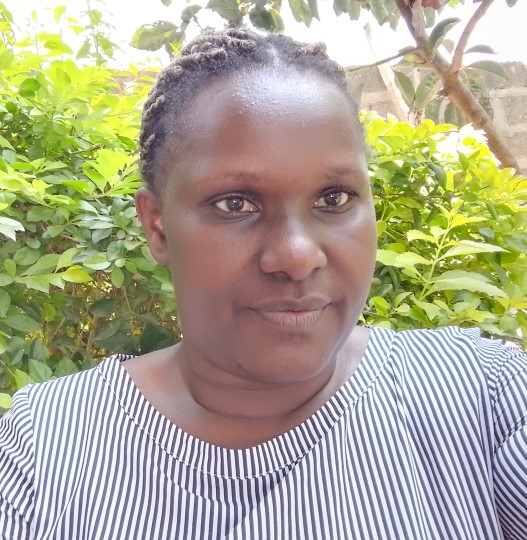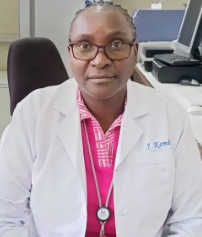|
|
|
|

|

|
|
 |
| Daniel Alejandro Buitrago Medina |
| Home
Country: |
Colombia |
| Degree: |
Universidad de Antioquia - Doctoral Program in Epidemiology 2nd year
Master's Degree in Public Health – Universidad de Antioquia
Specialist in Epidemiology – Universidad de Antioquia
Field Epidemiology Training Program Graduate – National Institute of Health, Colombia
Bachelor’s degree in Veterinary Medicine
|
Supervisor:
|
Dr. Eliana Martinez Herrera
|
Project Title:
|
Artificial Intelligence (AI) for Public Health Surveillance. Exploration of a machine learning model for predicting the risk of snake bites in Colombia in the context of climate variability.
|
|
|
|
Description
of the Project: Tropical snake bites are often overlooked as a serious public health issue with high mortality rates and potentially debilitating after-effects. In Colombia, the impacts are mainly felt by rural and vulnerable communities. Epidemiological surveillance systems that rely on passive monitoring have significant limitations, including delayed reporting, which often results in a response that is reactive rather than proactive. A limited understanding exists regarding environmental factors such as climate fluctuations (ENSO, MJO) and climate change, which can serve as ecological drivers, thereby modifying the usual distribution of snakes and, as a result, human-snake interactions. This study aims to enhance public health monitoring by creating and evaluating a predictive and early warning system, thereby enabling a proactive response to potential threats. The main aim of this study was to create and develop a machine learning model to assess the epidemiological risk of snake accidents at a subnational level in Colombia by integrating data on climate variability, climate change, and epidemiological factors. This study utilizes an observational analytical approach with a focus on data science methodologies. Algorithms will be trained and compared using historical data and machine learning tools to identify key predictors and generate risk estimates.
|
 |
| Maryann Wendy Akumu Buyu |
| Home
Country: |
Kenya |
| Degree: |
MSc Tropical and Infectious Diseases, University of Nairobi
MSc Research Fellow, University of Manitoba
BSc in Biology, University of Nairobi
|
Supervisor:
|
|
Project Title:
|
Biological characterisation of universal influenza vaccine that confers broad protection against multiple avian influenza strains by ADCC mechanisms.
|
|
|
|
Description
of the Project: Influenza A viruses cause seasonal epidemics and occasional pandemics, with outcomes ranging from mild to severe disease and death. Avian influenza subtypes such as H5N1 and H7N9 pose a major public health concern due to their ability to cross to humans causing mild to severe respiratory illness, as well as mortality in some cases. Current influenza virus vaccines require yearly updates to match the circulating subtypes of influenza viruses. However, genetic recombination mechanisms lead to emergence of new strains that may not be adequately covered by these vaccines. To address this challenge, my research focuses on characterising the immune responses induced by a vaccine incorporating the highly conserved M2 protein of influenza, with the goal of conferring broad protection against multiple virus subtypes. This approach would present a key step towards developing a universal vaccine and strengthening pandemic preparedness. |
 |
| Laura Paola Caballero Díaz |
| Home
Country: |
Colombia |
| Degree: |
Universidad de Antioquia - Doctoral Program in Epidemiology
Nurse – Master in public health
|
Supervisor:
|
Isabel Cristina Garces Palacio
|
Project Title:
|
Associated factors of the model of health beliefs and perceptions related to the prevention of sexually transmitted infections and pregnancies in adolescents attending school in Cúcuta, Colombia, 2024 - 2025.
|
|
|
|
Description
of the Project: The sexual health and reproductive health of the adolescent population, influenced by individual, family, school and environmental factors, requires priority attention, since deficiencies in support, information, guidance and education in sexual health and reproductive, has caused unwanted pregnancies, sexually transmitted infections (STIs), including HIV/AIDS, unsafe abortions and maternal and perinatal mortality, being a public health problem at this stage of life. This project will evaluate factors associated with the prevention of sexually transmitted infections and pregnancies in adolescents in school, and the perceptions of these factors in adolescents, parents of adolescents, teachers and school administrators, health service providers, and the Ministry of Education and Health in Cúcuta, Colombia. Thus, providing useful information for the development of plans, programs and policies aimed at improving the well-being and health of the adolescent population. |
 |
| Wilfred Gitau |
| Home
Country: |
Kenya |
| Degree: |
PhD, University of Manitoba, MMID
Jomo Kenyatta MSc, University of Agriculture and Technology, Medical Microbiology
Kenya Methodist University, BSc, Medical Laboratory Sciences
|
Supervisor:
|
|
Project Title:
|
Sex-associated protective effects of early-life treatment with interferon lambda for the prevention of virus-induced asthma.
|
|
|
|
Description
of the Project: The risk for severe infection and RSV-associated asthma development is higher in males than in females. However, the mechanisms by which RSV infection contribute to childhood asthma and the reasons for the sex disparity are still poorly understood. Results from this translational pre-clinical project could inform therapeutic strategies to alleviate disparate RSV-triggered asthma severity in male and female children. Interferon lambda treatment was recently shown to accelerate SARS-CoV-2 viral clearance in mild COVID-19 patients (Feld et al., 2021), therefore our strategy here is similar to promote innate antiviral immunity to RSV to hopefully dampen the virus’ effect on the immune system. |
 |
| Zipporah Njeri Gitau |
| Home
Country: |
Kenya |
| Degree: |
University of Manitoba, Medical Microbiology and Infectious Diseases, Doctoral student - year 1
M.Sc. in Applied Parasitology, University of Nairobi (2023)
B.Sc. in Microbiology and Biotechnology, University of Nairobi (2017)
|
Supervisor:
|
|
Project Title:
|
Microbiome and Metatranscriptomic dynamics of the genital microbiome and host response in people with sexually transmitted infections caused by Neisseria gonorrhea and Chlamydia trachomatis..
|
|
|
|
Description
of the Project: Neisseria gonorrhoeae is prevalent among female sex workers (FSW), and a qualitative study found that there are structural barriers to safe sex and made FSW more vulnerable to gonorrhea and other STI exposure and higher risky sexual behaviour [Abdullahi et al. 2022]). C. trachomatis is the most prevalent sexually transmitted infection (STIs) among men who have sex with men (MSM) and young women in Kenya (Mwaniki et al., 2023; Yuh et al., 202). Both STIs have short- and long-term consequences. It is a priority to know the role of the microbiome, to understand host-pathogen interaction, and the functional and metabolic capabilities of the genital community during and after an STI. We will use genital samples from two cohorts in Winnipeg to evaluate the longitudinal microbiome and metatranscriptome in people diagnosed with N. gonorrhoeae and C. trachomatis. |
 |
| Laxmi Gurung |
| Home
Country: |
Lamjung, Nepal |
| Degree: |
University of Manitoba, PhD student in Medical Microbiology and Infectious Diseases
M.Sc. in Medical and Molecular Microbiology, Mahidol University, 2020
B.Sc. in Medical Microbiology, Pokhara University, 2016
|
Supervisor:
|
|
Project Title:
|
Assessing cell-mediated and humoral immune responses induced by novel VSV-based Influenza vaccines..
|
|
|
|
Description
of the Project: My project is to study immune responses induce by novel rVSV-based Influenza vaccines. The main objective of the study is to characterise CD8 and CD4 T cells through multi-parameter flow cytometry analysis and to detect anti-Influenza antibodies after immunization in BALB/C mice. This study will help to understand phenotypes and functions of the Influenza specific T cells. Moreover, the humoral response will be useful to assess the ability of the novel vaccines to recognise different Influenza strains. |
 |
| Mylene Mana Hadidjatou |
| Home
Country: |
Kenya |
| Degree: |
University of Nairobi, MSc. Medical Microbiology
BSc. Biomedical Sciences
|
Supervisor:
|
|
Project Title:
|
Antigen-Specific Immune response.
|
|
|
|
Description
of the Project: Our project focuses on studying antigen-specific T-cell responses to Neisseria gonorrhoeae (NG) and Chlamydia trachomatis (CT) infections in the rectal mucosa. We aim to investigate how HLA/MHC allele diversity, especially those common in Kenyan populations, shapes immune recognition of these pathogens. Using techniques such as MHC multimer assays, intracellular cytokine staining (ICS), flow cytometry, and TCR sequencing, we will map both the clonality and functional profiles of T-cell responses. The project will also explore how the microbiome context (e.g., Prevotella- vs. Bacteroides-dominant clusters) modulates these immune responses. Ultimately, this work will provide new insights into host-pathogen interactions at mucosal sites, supporting strategies for vaccine design and STI immunotherapies. |
 |
| Loise Nthambi Joseph |
| Home
Country: |
Kenya |
| Degree: |
University of Nairobi-Microbiology and Immunology Department, Doctoral student- Tropical and Infectious Disease
Bachelor of Science in Medical Laboratory Science, Master of Science in Clinical Cytology
|
Supervisor:
|
|
Project Title:
|
HLA AND HPV: Role of Human Leukocyte Antigens in High risk Human Papilloma Virus clearance and persistence among adolescent girls in Kenya..
|
|
|
|
Description
of the Project: Human papillomavirus (HPV) infections are highly prevalent and if persistent can lead to cervical cancer. Human leukocyte antigens (HLAs) are crucial in mounting an individual’s T cell immune response to infection. Genetic variations in HLA genes have been associated with differences in HPV clearance, persistence, and progression to cervical cancer. However, few of these studies took place in African populations, who have higher diversity of HLAs. This study aims to investigate the polymorphic spectrum of HLA alleles within a Kenyan cohort of adolescent girls and young women and understand the role of HLA in HPV infection dynamics with regard to clearance and persistence. |
 |
| Clarissa Klenke |
| Home
Country: |
Canada |
| Degree: |
PhD, University of Manitoba, Medical Microbiology and Infectious Diseases
B.Sc. (Chemistry), University of Manitoba
|
Supervisor:
|
Dr. Aida Sivro and Dr. Lyle McKinnon
|
Project Title:
|
STI prevalence, molecular characteristics and infection dynamics among key and high-risk populations in sub-Saharan Africa..
|
|
|
|
Description
of the Project: Throughout Sub-Saharan Africa, sexually transmitted infection (STI) treatment is primarily symptom based with no active testing or surveillance activities. As such the epidemiology STIs, especially in communities disproportionately affected by chlamydia, gonorrhea, and human papillomavirus (HPV), is not well known. This project will determine STI incidence, prevalence, circulating strain diversity, co-infection dynamics, and antimicrobial resistance patterns to inform treatment guidelines and prevention strategies. Chlamydia and gonorrhea samples will undergo genetic testing, including screening for resistant mutations, while co-infections of HPV and bacterial STIs will be evaluated to determine their role in viral load and infection persistence and transmission. Ultimately, this research will provide actionable evidence to improve STI treatment policies, strengthen HPV prevention programs, and advance sexual health outcomes in marginalized communities. |
 |
| Janet Kemunto Kombo |
| Home
Country: |
Nairobi, Kenya |
| Degree: |
Master of Science in Medical Microbiology, University of Nairobi
BSc in Medical Laboratory Sciences, Kenya Methodist University
Higher National Diploma, Medical Laboratory Technology (Microbiology option), Kenya Medical Training College
Diploma in Medical Laboratory Technology, Technical University of Kenya
|
Supervisor:
|
|
Project Title:
|
Investigating the role Cervical Interleukin 17 cytokines in influencing HIV-1 Infection Outcomes.
|
|
|
|
Description
of the Project: Human Immunodeficiency Virus (HIV)-1 infection is still a major global health concern, with women and young girls in the sub-Saharan region disproportionately infected. Mucosal tissues are the primary sites for the natural transmission of HIV-1 and the major reservoir for its replication. It is therefore important to understand the initial interplay between HIV-1 and mucosal immune factors which will steer prevention and curative strategies. Interleukin (IL)-17A, C, E, and F cytokines have been seen to shape immune responses to microbial pathogens in the female genital tract by maintaining mucosal integrity and enhancement of other immune responses. However, their role in HIV-1 infection is not well known. |
 |
| Cristian Vera Marín |
| Home
Country: |
Colombia |
| Degree: |
Universidad Pontificia Bolivariana, Doctorate in Medical Sciences
|
Supervisor:
|
Dr. Johanna Marcela Vanegas, PhD
|
Project Title:
|
Dynamics of pulmonary and intestinal bacterial microbiota and their effect on the evolution of sepsis in patients admitted to the Intensive Care Unit, Medellín-Colombia - MicroSepsis.
|
|
|
|
Description
of the Project: Sepsis is a deregulated immune response to infection, which can result in organ failure and death, making it a threat to public health. In this regard, it has been documented that disruption of the gut microbiome appears to be a risk factor for sepsis and subsequent organ dysfunction, as the gut microbiome affects host susceptibility and response to sepsis through immune and metabolic pathways. Although several authors have studied the impact of the intestinal microbiome in the ICU patient with sepsis and it has been known that the intestinal microbiome modulates several responses to sepsis and is a potential therapeutic target in this condition, some aspects highlight the importance of the study of the bacterial microbiome in the evolution of this condition and its clinical outcomes, which in turn, evidence some pending problems still to be addressed in current studies. The objective is to analyze the profile and dynamics of intestinal and pulmonary bacterial microbiota and its association with the development and clinical course of sepsis in patients admitted to two Intensive Care Units, Medellin-Colombia. |
 |
| Grace Nyambura Mwaniki |
| Home
Country: |
Nairobi, Kenya |
| Degree: |
Jomo Kenyatta University Of Agriculture And Technology Doctoral Student Year 2
MSC in Public Health (2016) -(Epidemiology and disease control): Moi University
Bachelor of Science in Nursing (2007) -University Of Nairobi
|
Supervisor:
|
Dr Grace Mbuthia- Jomo Kenyatta University of Agriculture and Technology Supervisor; Professor Catherine Mwenda- South Eastern Kenya, University Supervisor
|
Project Title:
|
Community based risk reduction for teenage pregnancy in rural Kenya .
|
|
|
|
Description
of the Project: Teenage pregnancy remains one of the public health concerns that affect maternal morbidity and mortality statistics in Kenya. Efforts to contain the problem have been done by various stake holders however an examination of this efforts record little emphasis of the teenage pregnancy risk assessment among adolescents as a primary prevention strategy. We aim to examine the risk levels to teenage pregnancy in rural setups and propose customized community based risk reduction interventions to teenage pregnancies in selected rural sites in Kenya. |
 |
| Barclay Obiero |
| Home
Country: |
Kenya |
| Degree: |
University of Manitoba, Doctoral Student in Medical Microbiology and Infectious Diseases, Year 1
University of Nairobi, MSc Medical Microbiology
University of Nairobi, BSc Medical Laboratory Science and Technology
|
Supervisor:
|
|
Project Title:
|
Identifying Immune Markers of HPV Viral Clearance.
|
|
|
|
Description
of the Project: Human Papillomavirus (HPV) infections are a major health concern, particularly the high-risk groups of HPV, due to their association with several malignancies including cervical cancer in which HPV causes over 99% of the cases. The immune system is crucial in determining whether an HPV infection is cleared or if it persists. Natural Killer (NK) cells are potent first-line defense in both viral and cancer cases, hence many studies have reported potential therapeutic approaches with NK cells for some cancers. My research aims to determine the NK cell immune profile among a cohort of Female Sex Workers (FSW) who naturally clear HPV and those in whom the infection persists. Assessing the immune profile of NK cells early in HPV infection will provide essential information on the feasible approaches to therapeutic vaccine development. |
 |
| Lameck Nyangena Ontweka |
| Home
Country: |
Kisii, Kenya |
| Degree: |
Doctoral student 3 year, Kenyatta University
Master degree, Infectious Diseases, Kenyatta University, Kenya
BSc, Medical Laboratory Sciences, Kenya Methodist University
Higher National Diploma in Medical Laboratory Sciences and Diploma in Medical Laboratory from Technical University of Kenya
|
Supervisor:
|
|
Project Title:
|
Molecular characteristics and aptamer development for vibrio cholera detection in water reservoirs in Kenya during endemic periods.
|
|
|
|
Description
of the Project: The project will determine the water reservoirs and molecular characteristics of Vibrio cholera isolates during inter-epidemic period in Kenya and eventually develop an innovative aptasensor diagnostic kit that could be used in cholera surveillance |
 |
| Shruti Rathore |
| Home
Country: |
|
| Degree: |
MSc - 2yr, Medical Microbiology and Infectious Diseases, University of Manitoba.
Amity University, B. Tech in Biotechnology 2021
|
Supervisor:
|
|
Project Title:
|
Characterization of Cervicovaginal T Cell Receptor (TCR) Profiles Associated with Persistent HPV Infection.
|
|
|
|
Description
of the Project: This project aims to investigate the T cell receptor (TCR) profiles in the cervicovaginal region of women with persistent human papillomavirus (HPV) infections. By utilizing TCR sequencing techniques, we will analyze the diversity and clonality of TCRs to identify specific patterns associated with persistent infection, as compared to women who naturally clear HPV. Understanding these immune signatures may provide insights into the mechanisms of immune evasion by HPV and aid in the development of targeted immunotherapies or predictive biomarkers for persistent HPV infections. This study has implications for HPV-associated diseases, including cervical cancer prevention. |
 |
| Grace Wambui Waturu |
| Home
Country: |
Kenya |
| Degree: |
PhD in Medical microbiology
Bsc in Medical microbiology- Jomo Kenyatta University of Agriculture and Technology and Msc in Medical microbiology- University of Nairobi
Bachelor of Veterinary Medicine School, Universidad de Antioquia, 2017 |
| Supervisor: |
Prof Walter Jaoko, Prof. Marianne Muriithi
|
Project Title:
|
Investigating epidemiology and genomics of extended spectrum beta lactamases and carbapenem resistant enterobacterales (E. coli and Klebsiella) from patients in level 5 hospital and associated waste-water ecosystem, Thika, Kenya. |
|
|
|
Description
of the Project: This project investigates the epidemiology and genomics of Extended Spectrum Beta-Lactamases (ESBLs) and Carbapenem Resistant Enterobacterales (CRE), focusing on E. coli and Klebsiella from patients in a Level 5 hospital and associated wastewater ecosystems in Thika, Kenya. The study aims to determine the prevalence and genetic factors of antibiotic resistance, contributing to public health strategies and infection control measures. Additionally, it will assess the environmental impact of hospital waste on the spread of antimicrobial resistance.
|
|
|

|
|
|

